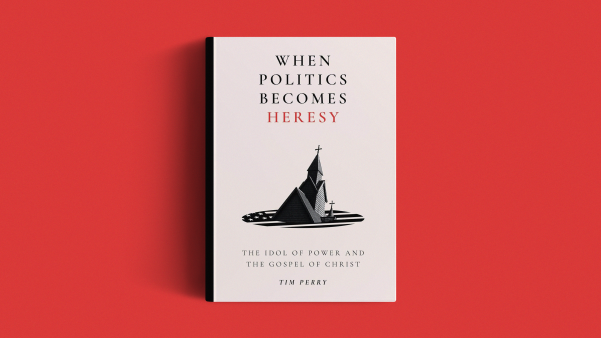I stood on my driveway with my daughter, and we looked at the freshly-painted window trim. Moments earlier, she had held the extension ladder while I applied paint via a roller affixed to the end of an 8-foot pole. Back safely on the ground, I wondered aloud about touching up a few small missed spots visible only from atop the 12-foot ladder. “It might look even better,” I said.
“Or maybe you’ll mess it up. It looks real good right now,” she countered. “But it’s your call.”
Decisions, decisions. Ask people why they would enjoy climbing into a leadership position, and their honest response will often focus on authority to make decisions. Yet, ask leaders what feels heaviest about their roles, and the honest response will often focus on the weight associated with decision-making.
Is the decision a good one, or the wrong one? Is it more important to be decisive, or flexible? Is it more important to be timely, or thorough? Is it time to be bold, or to delegate? The trade-off list goes on and on because the list of “what ifs?” knows no end. It’s anything but easy to stand ultimately accountable for choices that affect more than yourself. In fact, that’s what makes leadership lonely. And right there, alone in that difficult spot, a leader either learns to thrive or live with anxiety.
To avoid decision anxiety, consider five key questions that will relieve pressure in many (although not all) situations.
1. What is the worst thing that could happen? Everyone has heard about the fear of the unknown. This question eliminates such fear through articulation. Play out what will happen if a terrible decision gets made; most times it will land far south of catastrophe. To embrace the reality of what’s at stake and what’s not will prevent fear-based decision paralysis. This question’s true value comes when it sets up the second question.
2. What will happen if this works well? Maintain focus exclusively on the downside (see question 1) and decision-making remains an onerous task. So keep going with trust that optimism, on the other hand, provides the fuel needed for progress to happen. The status quo changes when given a positive reason—when you pursue a preferred new outcome. That said, weigh this question against the first and many decisions become lighter and easier—and more obvious.
3. What timing/sequence does this impact? This requires me to look past myself and, instead, focus on the good of the organization and other’s sanity. Unfortunately, this question receives very little notice. Instead, plenty of leadership literature heralds waiting as long as possible to make decisions. While the “slow drip” approach certainly can help to ensure that careful consideration takes place, keep in mind how annoying a slow drip can be—especially when others stand in line, waiting with virtual thirst for someone to make a decision.
For example, a member of our staff team attended a leadership team meeting and presented a well-crafted plan to launch a new department. Two months later, she attended again for more consideration as the budget planning process neared a key due date. After close to an hour of discussion that looped on the same few questions, she broke the cycle when she asked, “Are you going to approve what I’m proposing or not? A decision needs to be made.” (Rest of the story: The moxie she showed earned her a promotion as the director of the new department, fully funded in the budget.)
Conversely, a leader who consistently models hasty decisions promotes recklessness. Seek balance; the next item will help.
4. How much information is required to make a good decision? A leader will make a well-informed choice when “well-informed” is defined—ahead of time. No one can see every angle and learn every fact possible, so considering this question will prevent a seemingly endless wait. Young leaders should seek wisdom from veterans about how much is enough.
5. Must I make this decision? Yes, someone needs to decide. But consider if someone is you or if this is a chance to delegate. While assigning or allowing someone else to decide does not eliminate a leader’s accountability, others fail to develop the confidence to choose a course of action if never given the chance. Yes, delegation serves the greater organization well—except for those times when it’s actually a slipcover that masks avoidance. Or lack of guts, for those who love straight talk. However, make the decision on who will decide earlier rather than later. In fact, start with the first question to begin the process.
No, I didn’t climb the ladder and continue painting. Erin made the right decision easy to see.
David Staal, senior editor for Building Church Leaders and a mentor to a second grader, serves as the president of Kids Hope USA, a national non-profit organization that partners local churches with elementary schools to provide mentors for at-risk students. He also chairs the advisory board for a nearby college and served ten years in leadership for a local church following a corporate career. David is the author of Lessons Kids Need to Learn (Zondervan, 2012) and Words Kids Need to Hear (Zondervan, 2008). He lives in Grand Haven, MI, with his wife Becky. His son Scott and daughter Erin attend Valparaiso University.








